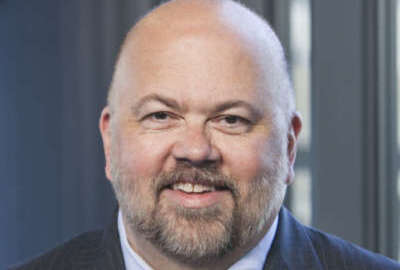
The oath of office and what it means
Why do public servants take an oath of office? The reason is simple – public servants are just that – servants of the people.
This column was originally published on Jeff Neal’s blog, ChiefHRO.com, and was republished here with permission from the author.
Federal employees, Representatives, Senators, judges, political appointees, the President and Vice President of the United States take an oath of office. So what does taking an oath mean? Why even do it?
The reason is simple – public servants are just that – servants of the people. After much debate about an Oath, the framers of the U. S. Constitution included the requirement to take an Oath of Office in the Constitution itself. Article VI of the Constitution says, “The Senators and Representatives before mentioned, and the Members of the several State Legislatures, and all executive and judicial Officers, both of the United States and of the several States, shall be bound by Oath or Affirmation, to support this Constitution; but no religious Test shall ever be required as a Qualification to any Office or public Trust under the United States.” The Constitution does not prescribe the actual text of the Article VI oaths. For federal civil service employees, the oath is set forth by law in 5 U.S. Code § 3331, which reads as follows:
“An individual, except the President, elected or appointed to an office of honor or profit in the civil service or uniformed services, shall take the following oath: “I, ___, do solemnly swear (or affirm) that I will support and defend the Constitution of the United States against all enemies, foreign and domestic; that I will bear true faith and allegiance to the same; that I take this obligation freely, without any mental reservation or purpose of evasion; and that I will well and faithfully discharge the duties of the office on which I am about to enter. So help me God.””
The President is also required by the Constitution to take an Oath of Office. Article 2, Section 1, of the U.S. Constitution prescribes the Oath. It says, “I do solemnly swear (or affirm) that I will faithfully execute the Office of President of the United States, and will to the best of my ability, preserve, protect and defend the Constitution of the United States.”
The Oaths are relatively straightforward, but what do they mean? I see the oath as having 3 important aspects. First, the employee swears to support and defend the Constitution against enemies. Second, they swear allegiance to the Constitution. Finally, the employee promises to do their job well.
One thing that federal workers often hear is a career supervisor or political appointee talking about loyalty to the agency or the boss. One purpose of the Oath of Office is to remind federal workers that they do not swear allegiance to a supervisor, an agency, a political appointee, or even to the President. The oath is to support and defend the U.S. Constitution and faithfully execute your duties. The intent is to protect the public from a government that might fall victim to political whims and to provide a North Star – the Constitution – as a source of direction. Other laws have been enacted that support that view. For example, in 1939, Congress passed and President Franklin D. Roosevelt signed the Hatch Act. We call it that today, but the actual name of the law is “An Act to Prevent Pernicious Political Activities.”
The Oath does not remove ambiguity and it is not always easy for an employee to know what to do. Here are a few examples:
- Lawful orders. Let’s say someone in authority gives a federal worker a lawful order that s/he does not agree with. That disagreement might be for ethical reasons, differences in policy direction, or other reasons. Federal employees are required to follow lawful orders, even if they disagree with them.
- Unlawful orders. 5 USC 2302(b) (9)(D) gives employees the right to refuse with respect to unlawful orders. Refusing an unlawful order is not easy. The employee may face significant pressure to carry out an order that s/he knows is unlawful. Most employees never have the experience of being given an unlawful order. In the few cases it has happened to me, an explanation to my boss that what I was asked to do was illegal was sufficient and the matter was dropped. If it had not been enough, my only acceptable course would be to refuse to carry out the order. Doing something illegal because you are “just following orders” is not a viable defense.
- Regulatory violations. What happens when an order violates a regulation or rule, but is not technically illegal? A 2015 Merit Systems Protection Board decision directly answered that question. MSPB outlined the issues in the case, writing “Specifically, the appellant asserted that the agency violated 5 U.S.C. § 2302(b) (9)(D), which protects employees from retaliation “for refusing to obey an order that would require the individual to violate a law.” 5 U.S.C. § 2302(b) (9)(D). He alleged that the agency improperly stripped him of particular job duties and gave him a subpar performance rating for disobeying an order that would have required that he violate (1) a Federal Acquisition Regulation that limits the authority of a contracting officer’s representative (COR), and (2) “PA296: How to be a COR,” the agency’s training course for COR certification, which further clarifies the limitations to this authority.” MSPB’s final decision said “…we hold that the right-to-disobey provision at section 2302(b) (9)(D) extends only to orders that would require the individual to take an action barred by statute. Because the appellant in this case contends that he disobeyed an order that would have required him to violate an agency rule or regulation, his claim falls outside of the scope of section 2302(b) (9)(D).” That means a manager could discipline or even remove an employee for failing to carry out an order that violates a regulation but not a law.
- Other situations. The oath of office and most case law do not grant any protection for deciding that an order is a bad idea, bad policy, or morally wrong. In fact, the oath does not grant any protection from anything. It is an oath of allegiance and a promise to do good work. Employees who believe they are being ordered to act in a manner inconsistent with their oath of office may pursue other options, such as whistleblower complaints, contacting their Senators or Representatives or their organization’s Inspector General, or any other avenue provided by law or regulation. Disobeying direct orders is generally not one of the available options. That means an employee who wants to argue that s/he is adhering to the oath of office by disobeying orders has a very tough hill to climb. There is also the option of going to the press, but that can bring its own set of risks. It is up to individual employees to decide how much risk they are willing to assume.
Federal workers are accountable to the people, not to politicians. Whether an employee was a Trump supporter or Clinton supporter, a supporter of another candidate, or someone who chooses not to vote at all is not relevant to the oath of allegiance to the Constitution. Nor is it relevant to the promise to do a good job. Most federal employees are highly professional. They understand their oath of office and take it seriously. Even though many political appointees in every Administration do not recognize the professionalism of federal workers on the day they take their own oath of office, as their experience with federal workers increases, they typically begin to recognize the vital role federal employees play.
I have been hearing more and more from people who say that federal workers should support the President more, or that federal workers should actively work against the President. I heard that to a lesser degree in the Obama Administration too. Neither is true. Federal workers should do their jobs, obey the law, and carry out their oath to support and defend the Constitution. That is what most of the American people expect and deserve from their public servants.
Copyright © 2025 Federal News Network. All rights reserved. This website is not intended for users located within the European Economic Area.



